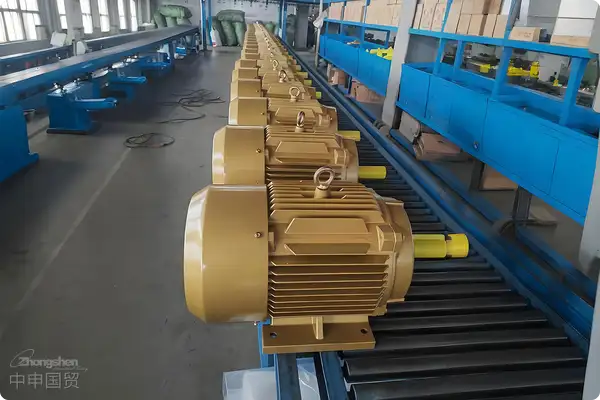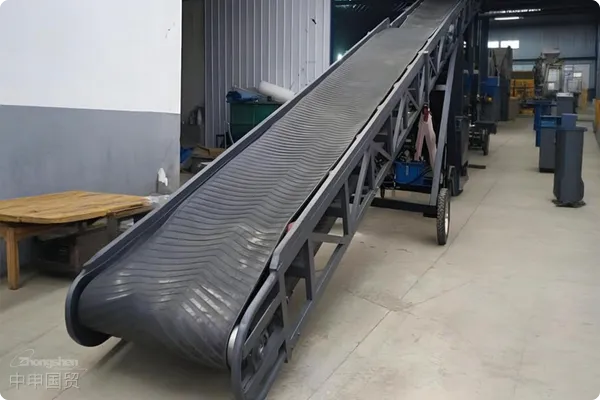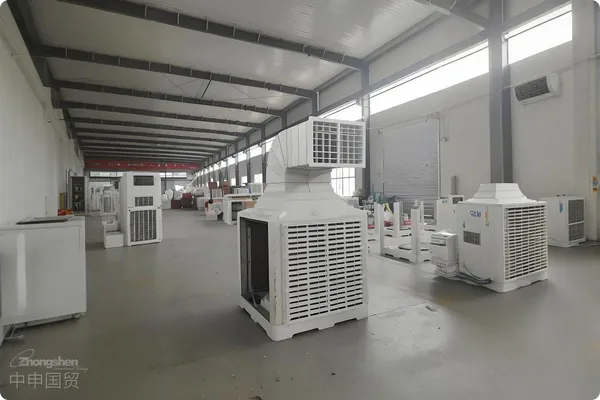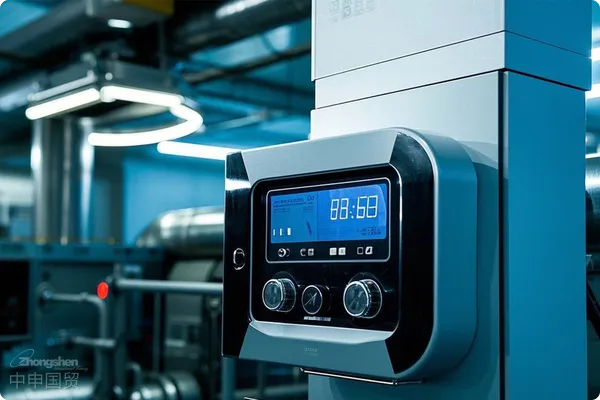- Shanghai Zhongshen International Trade Co., Ltd. - Two decades of trade agency expertise.
- Service Hotline: 139 1787 2118
In the Vietnamese market, the compliance of imported goods has always been strictly controlled by the customs. For equipment products exported to Vietnam, such as pad - printing machines, many exporters may overlook some seemingly insignificant details, such as the issue of the origin label. In fact, the lack of an origin label may cause trouble in the entire customs clearance process. So, what exactly will happen if a pad - printing machine exported to Vietnam does not have an origin label? Today, we will analyze this topic in detail.
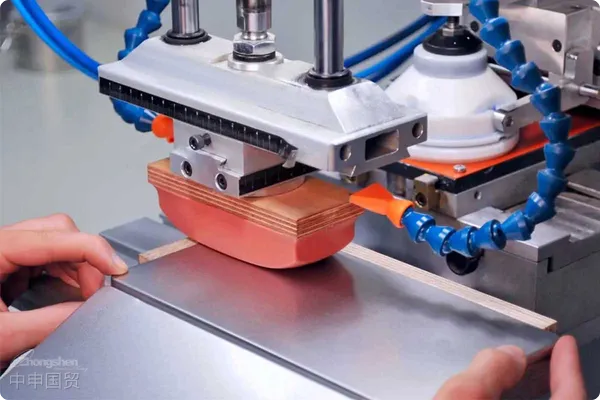
I. Requirements for Vietnamese Origin Labels
According to relevant Vietnamese customs policies, most imported goods need to clearly mark the origin information on the products when clearing customs at the port. A common practice is to print or affix a Made in XXX label to indicate the place of manufacture of the product. This is not just an ordinary label issue, butan important manifestation of product compliance. Specifically, the Vietnamese customs has the following requirements:
- Origin Label: The product itself or its packaging must be marked with a clear origin, such as Made in China.
- Certificate of Origin: Usually needs to be providedIt is recommended to verify through the following methods:書FORM E, and this certificate is used to prove the origin of the goods so as to enjoy preferential tariff treatment in Vietnam (according to the China - ASEAN Free Trade Area Agreement).
Therefore, the origin label and the certificate of origin are two different things. The former is a requirement for the physical product identification, while the latter is to prove the compliance of tariff preferences.
II. Consequences of Not Having an Origin Label
Goods Detention or Delayed Release
If the exported pad - printing machine does not have an origin label, the Vietnamese customs is likely to refuse to release the goods after they arrive until the problem is resolved. This means that the goods will be detained, resulting in delayed delivery, which may in turn cause a breach - of - contract risk for both the buyer and the seller. For some projects that require timely delivery, such a delay may bring immeasurable losses.
Fines or Increased Costs
For goods without an origin label, the Vietnamese customs usually regards it as a violation and may impose a fine on the importer or exporter. The amount of such fines usually varies depending on the specific violation circumstances, the value of the goods, and other relevant factors. In addition, due to the detention of the goods, additional warehousing costs and customs - clearance delay costs may also be incurred, and all these costs ultimately need to be borne.
Additional Costs of Subsidizing Labels
In the case of goods being detained, the most common way to handle it is for the freight forwarder or importer to arrange for the operation of subsidizing labels locally in Vietnam. This operation will generate additional costs and increase the uncertainty of customs clearance. In many cases, the cost of subsidizing labels is not cheap, and since it is not operated by the original factory, it may also affect the appearance of the product or the integrity of the packaging.
Reputation Risk
If the goods are detained or fined due to the lack of an origin label, this situation will not only bring direct economic losses but also have a negative impact on the reputation of the enterprise, especially the cooperative relationship with Vietnamese customers. Customers may think that the exporters operations are not standardized, leading to concerns about future cooperation and affecting further orders.
III. How to Avoid These Problems
Confirm the Origin Label Requirements
Before export, it is necessary to confirm clearly with the Vietnamese importer, the booking freight forwarder, and the customs clearance company to ensure that the products have origin labels that meet the requirements. If there are any questions, you can confirm their specific requirements with the importer to avoid mistakes.
Standardize Packaging and Labels
Before export, it should be ensured that each pad - printing machine and its packaging are clearly marked with Made in China or other relevant origin information, and the label content should be clear, legible, and in line with the regulations of the Vietnamese customs.
3. FORM E的辦理
The FORM E certificate of origin is an important document when exporting to Vietnam, which is used to ensure that the goods enjoy the preferential tariff policy of the China - ASEAN Free Trade Area. Although the FORM E can prove the origin and tariff preferences, it cannot replace the origin label on the product itself. Therefore, both the certificate of origin and the origin label must be ensured.
Communicate Customs Clearance Requirements in Advance
Before shipping, it is recommended to communicate clearly with the booking freight forwarder or directly confirm all customs clearance requirements with the importers customs clearance agent, including whether there are any special packaging or label requirements. This kind of advance communication can greatly reduce customs - clearance obstacles caused by non - compliance.
IV. Specific Operational Suggestions
Confirm Regulations in Advance
Since the policies of each country may be adjusted according to the actual situation, it is recommended that exporters pay attention to the latest regulations of the Vietnamese customs at any time or consult a professional customs broker to accurately understand the requirements for labels and customs clearance.
Seek the Help of Freight Forwarders or Customs Clearance Companies
If you are not sure about the requirements of the Vietnamese customs, it is recommended to consult a freight forwarder or a customs clearance company in advance. They usually have a better understanding of the policies of the destination country and can provide practical suggestions and guidance.
Small - value Goods Can Try Flexible Handling
If you do encounter a situation where there is no origin label and the value of the goods is low, you can contact the local freight forwarder to see if the problem can be solved by subsidizing labels or paying additional fees. However, this method is not recommended for frequent use, because once it attracts strict inspection by the customs, more troubles may be faced.
V. Summary
If the pad - printing machines exported to Vietnam do not have origin labels, they will indeed face a series of risks such as goods detention and fines. The origin label is an important manifestation of product compliance. Exporters must ensure that the labels meet the regulations before shipping the products to complete customs clearance smoothly and reduce delays and additional costs.
In export trade, details often determine success or failure. The Vietnamese customs has strict requirements for the compliance of the origin. Although the label is a small detail, it is related to the smoothness of the entire customs clearance. Therefore, ensuring that all products have origin labels that meet the regulations before export is a step that exporters cannot ignore.
Final Tips: For any export issues, whether it is labels, packaging, or certificates, be sure to confirm clearly in advance. Ask more and confirm more to ensure that everything goes smoothly. It is better to spend more time and energy before shipping to ensure that every step is correct than to spend money to solve problems after they occur.
Related Recommendations
Category case
Contact Us
Email: service@sh-zhongshen.com
Related Recommendations
Contact via WeChat

? 2025. All Rights Reserved. 滬ICP備2023007705號-2  PSB Record: Shanghai No.31011502009912
PSB Record: Shanghai No.31011502009912

